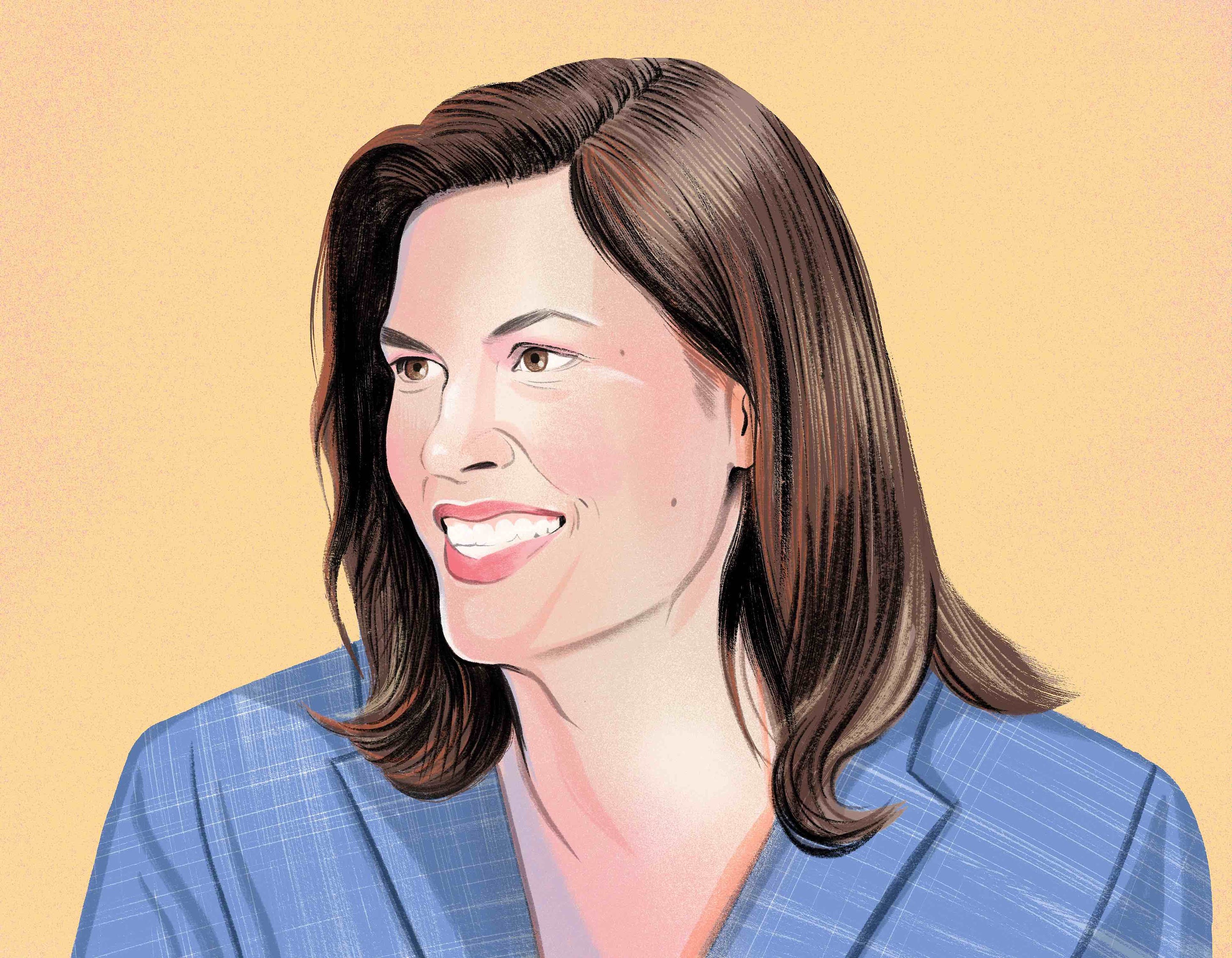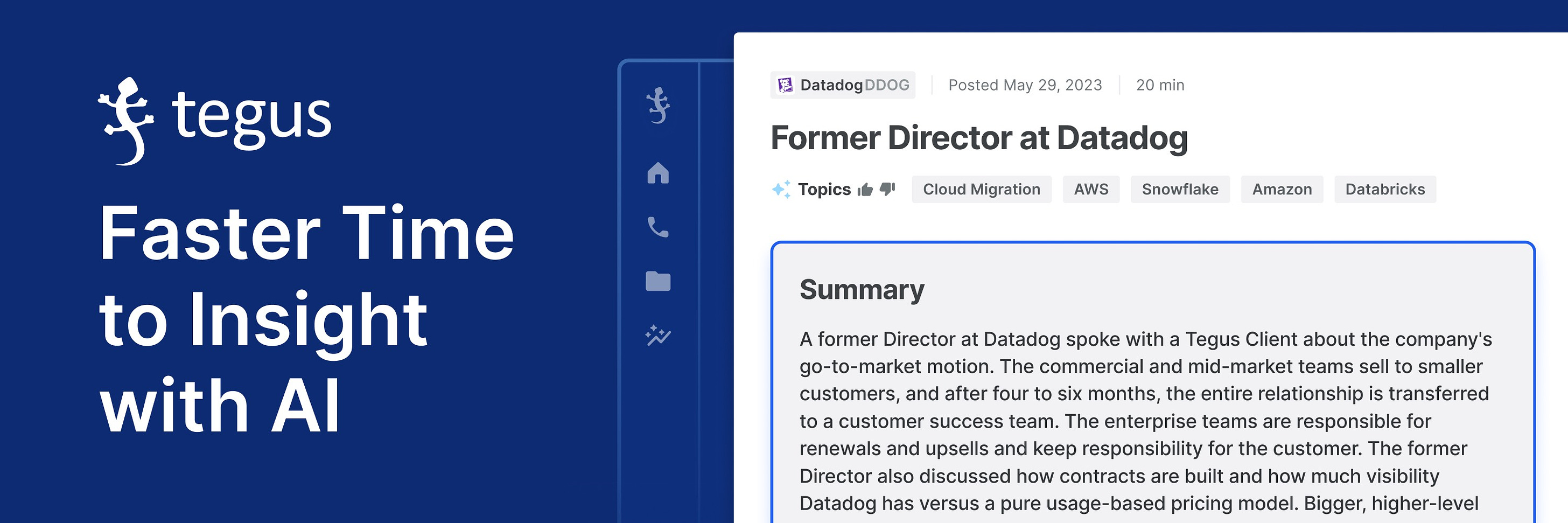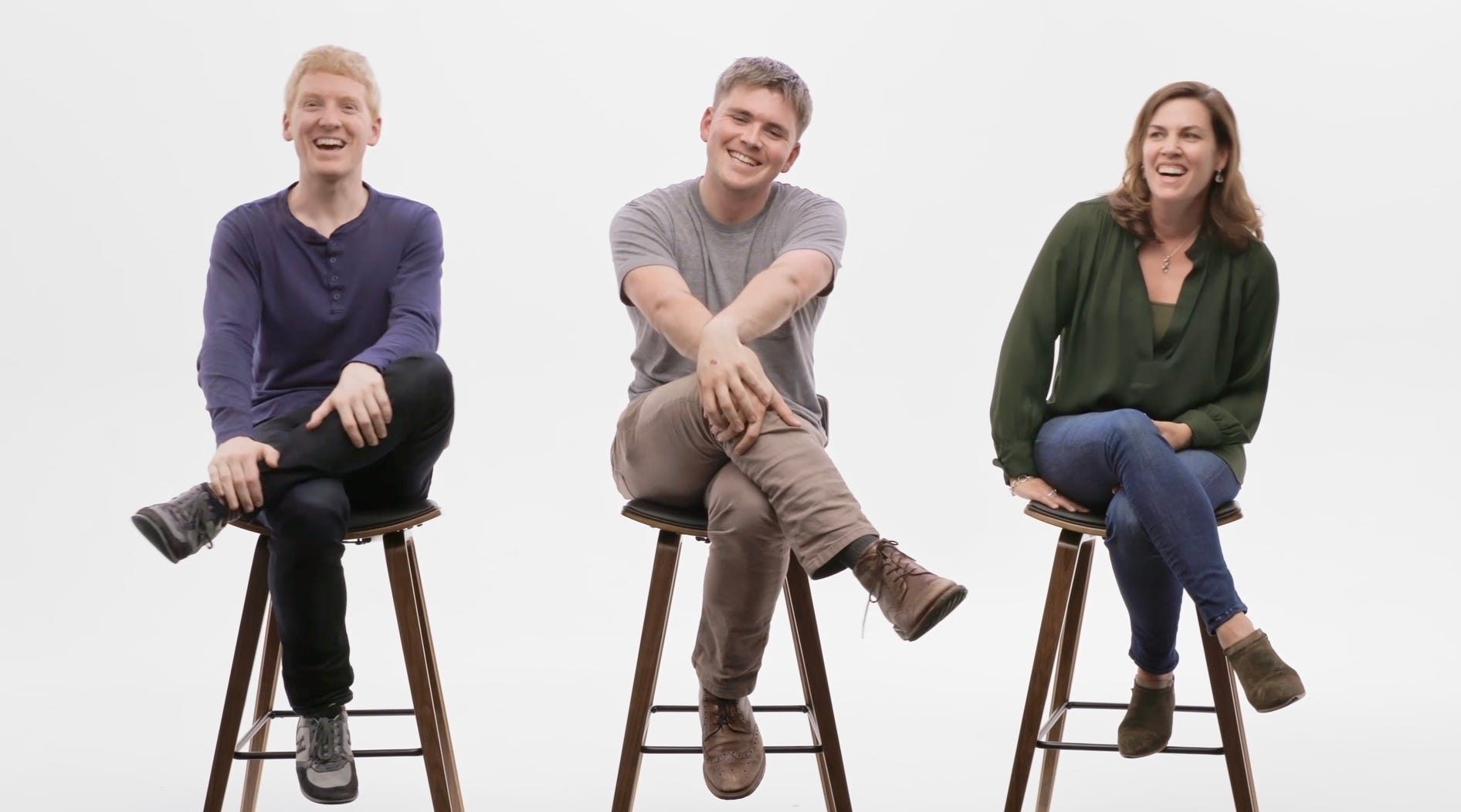Modern Meditations: Claire Hughes Johnson
Modern Meditations: Claire Hughes JohnsonThe Stripe executive on leadership, linguistics, and literature.Friends, To write an average business book, an author requires: a reliable laptop, a willing publisher, a decent, celebratory social media audience, a sense of great import, and a twenty-page conceit stretched to a two-hundred-page length. We have all read this book. In all likelihood, we have read many versions of it: on the life-changing magic of meetings and the life-changing magic of no meetings; on the elixirs of productivity and deficiencies of the idle; on the secrets of “geniuses” and habits of titans; on managing one’s team like a family and running one’s family like a Fortune 500. These manuals succeed at being both vague and overly specific, disguising the emptiness of their message with hacks and tips and the kind of relentless repetition that makes you wonder, haven’t I read this chapter before? And, of course, you have – it’s the same as the last one. Scaling People is not one of these books. And Claire Hughes Johnson is not one of these people. The former Chief Operating Officer is one of the most consequential executives of the past decade, overseeing Stripe’s transformation from a high-potential startup with 160 employees into a global giant. Indeed, when Claire stepped away from her role as COO and into an advisory position, Stripe boasted a workforce more than 7,000 strong. Across her six-and-a-half-year stint as a member of the C-Suite, Claire established a reputation as one of Silicon Valley’s most effective and strategic COOs. Before her work at Stripe, Claire spent a decade at Google, rising to run the business side of the firm’s self-driving car initiative. Alongside her continued advisory work at Stripe, today, Claire also serves on the boards of Hubspot, Aurora, Ameresco, and The Atlantic. Scaling People reflects Claire’s rich experience and formidable tactical mind. In its substantiveness, rigor, and practicality, it stands out from the bland avalanche of traditional managerial fare. It is a book written by a genuine expert with real, tangible lessons to impart. It is also a fundamentally human book. Though Claire is minded toward the pragmatic, a keen understanding of people sets her apart. Alongside useful frameworks and checklists, readers of Scaling People will find a deep appreciation for the human problems of communication and collaboration. As you’ll discover in this edition of Modern Meditations, that combination of efficacy and artfulness is at the heart of Claire Hughes Johnson. She is a world-class operator with an artist’s spirit – a student of great literature, an appreciator of art, and a staunch believer in the value of the humanities. These are her meditations. An ask: If you liked this piece, I’d be grateful if you’d give it a “heart” ❤️ from the header above. This helps us understand which pieces you like most and supports our growth. Thank you! Brought to you by TegusAre you spending too much time skimming expert transcripts or digging for insights so you can make powerful investment decisions? Powered by advanced AI and machine learning algorithms, Tegus’ platform supercharges your research process so you can extract valuable insights in seconds. We summarize each expert transcript so you can assess key questions and themes before digging deep. But that’s not all—Tegus now auto-tags topics discussed both within a transcript, and across transcripts for a company so you can quickly assess if you want to dive deeper into content. Increase your research efficiency and reduce your time to insight with Tegus’ latest innovations in AI. Actionable insightsIf you only have a few minutes to spare, here’s what investors, operators, and founders should know about Claire Hughes Johnson’s meditations.
Note: This conversation has been edited for clarity and readability. What would you be doing if you didn’t work in tech?I think I’d be teaching. My parents are educators: my mom taught humanities at Boston College, and my father worked as a high school English teacher and coach. Teaching wasn’t a career path I considered when I was younger. Like many of us tend to do, I rejected my parents’ profession growing up. And yet, I often think about being an educator. In part, that’s because being a good leader and manager has a strong educational component. What would I teach? If you’d asked me in college, I would have guessed something related to literature. I majored in English and American Literature at Brown. Today, I’d choose something more business-focused. I actually think a version of my book Scaling People would work well as a class, particularly if you married its operational content with a research-driven, academic perspective. I’d think of it as a course on “Leading in Practice.” Typically, it’s hard to avoid platitudes when discussing management and leadership. What interests me most about adapting Scaling People into a course is that it puts those topics into a practical context. Just as you have “Applied Mathematics,” this would focus on “Applied Leadership.” I’m much less interested in conceptual leadership – I want to see it in action. I would need an academic partner to do it justice; I’m not going to get my PhD anytime soon. If it was done well, I could see it becoming a program for young professionals – outside of a traditional business school context. I like the idea of making some of this information more accessible to young professionals – people early in their careers. What does it really look like to operate in a workplace? What parts of professional life require demystifying? College doesn’t explain these things to you. Which current or historical figure has most impacted your thinking?I find it hard to answer this question. I think it’s because I’m a synthesizer by nature. I collect ideas from a lot of different individuals, current and historical. I use those sources to create my own pattern, my own system of thought. I would say that some of the intellectual influences I encountered in college ended up really impacting my thinking. I became very interested in linguistics, semiotics, and literary criticism during those years. That introduced me to philosophers like Ferdinand de Saussure, Julia Kristeva, and Hélène Cixous. I also spent a lot of time studying writers like Jeanette Winterson and Virginia Woolf. My thesis actually focused on a few of their novels – drawing comparisons between their writing and analyzing its subversiveness. It may be strange to say, but I think a lot of my development as an empath and leader comes from engaging with these thinkers. Writers like Kristeva and Cixous forced me to ask fundamental questions like: What is language? What are its imperfections and limitations? What lives underneath our words? As a leader, so much of what you’re trying to do is convey and receive meaning. When a colleague asks you a question, understanding their message isn’t as straightforward as simply listening to their words verbatim. There’s the question they’ve asked, and then there’s the motivation under it. What do they really want? It’s in digging beneath words that we can truly hear, truly see. The writers I’ve mentioned helped me understand that. What craft are you spending a lifetime honing?It’s a toss-up between being present and really listening. They’re connected, of course. I try to cultivate being present through good habits. Sleep, meditation, and exercise all help. It’s easier to access that presence when you’re grounded in your mind and body. Naturally, I’m most present in one of two modes: extreme crisis or extreme relaxation. If there’s a real crisis, I am right there. I soak up everything I can, paying attention and learning from everyone involved. The other is when I’m at my most relaxed. When it feels like you’ve got all the time in the world. It’s like a barbell distribution for me: being in the moment is easier under severe stress or no stress at all. You have to be present to be a good listener. I’ve had to work for a long, long time at truly listening. That goes back to our discussion of semiotics – it’s the practice of really, truly trying to understand someone. I’m too much of a multitasker by nature – I’m usually thinking about several things at once and figuring out what needs to happen next. I also have a bias toward action. When someone comes to me with a problem saying, ‘Hey this thing is exploding,’ I instinctively want to jump to the solution. I’ve come up with tricks to change these habits. I share one of them in Scaling People: when someone comes to me with a problem, I force myself to ask a follow-up question instead of rendering an opinion quickly. (And then, the next trick is to listen to the answer!) It’s a way of retraining my muscle memory and making me a better, more present listener. What is the most significant thing you’ve changed your mind about over the past decade?The value of direct constructive criticism. When I was just getting started in tech – working at Google with a bunch of engineers – I often found receiving extremely direct, critical feedback difficult. I would get sensitive and defensive. As a manager, there have also been times when I’ve hesitated to give really direct feedback. There are a few reasons for that. On a personal level, I was almost afraid of overstepping – thinking it wasn’t my role to provide the feedback that today makes me a much better manager. It’s also true that if you deliver direct feedback badly, it can feel like an accusation. That locks up the conversation, stopping you from going deeper. That’s really the core meme about providing criticism: we all have a fight or flight response, and the minute we feel attacked, we’re going to run either physically or mentally. If you agree with that argument, then as a manager, you think your best bet is to tread carefully because you don’t want to cause someone to run away. Over the past decade, I’ve come to recognize the flaws in that logic – and appreciate what direct feedback can uncover. Only by being honest can you unlock a deeper, more productive conversation. Of course, the trick is in delivering it effectively. We often envision critical conversations as combative, where the parties stand in oppositional positions. I aim to approach the situation as partners, standing side by side. To do that, you have to be aware of the language you’re using; you want to show empathy and curiosity but also take a bit of a risk. If a report of mine had just given a nervous presentation to the CEO, for example, I might address it by saying, “In that meeting, it felt to me like you were nervous. I’d love to understand: how did you feel?” It’s also important to help them understand that you’re there to support them, to tell them, “By the way, it’s my job to help you be better.” Now, the person may say they don’t know what you’re talking about. But often, if you frame it correctly, they become curious too. They’ll ask: “What made you think that?” or “What could I have done differently?” You can get to a deeper place by asking those kinds of questions, unlocking a much richer set of solutions. Maybe you discover they’ve always been nervous about speaking in front of people. Ok, how can we turn that into a development area? How do we work on that? The only way to enter this ladder of inquiry is to put something forward. To take a risk and be direct. You’ll make mistakes, but today, I would say it’s worth the risk. Otherwise, you’ll end up in pretty boring conversations that help no one. What piece of art can you not stop thinking about?Music for Cannibals by Gonzalo Fuenmayor. It’s this big black and white charcoal drawing I have hanging in my house, depicting a goose suspended in front of these huge speakers. I like art that makes me think and makes me feel – this is a piece that does both. I’ll look at it, wonder where it gets its name from, and feel the music blasting from the speakers. I’m kind of obsessed with Fuenmayor’s work at the moment. He’s a living artist from Colombia that has spent much of his life in the US. You can see those influences in his work – he combines themes of colonialism, materialism, and capitalism into his pieces. For example, he’ll reference Macondo – the mythical city in Gabriel García Márquez’s One Hundred Years of Solitude – but render it in McDonald’s imagery. There’s something subversive and provocative about his work, which in many cases is an exploration of his identity, I think. Beyond the subjects in pieces, I admire his craft. I love collecting living artists, but I’m not usually drawn to drawing or charcoal. Fuenmayor uses charcoal differently, making what he considers more like a painting. It’s impressive to create something so deep and painterly with that medium – especially on a large scale. You heard it here: I think this guy is a talent to watch. In general, there’s a part of me that is a deep aesthete. Loving literature is a big part of that, as is my visual world. It’s not usually something I get to exercise professionally. When I was at Google, I remember doing some assessment, and afterward, an executive coach said, “You know you have an eye aesthetically. How is that part of your day-to-day job?” All I could really say was that sometimes I was in a design review meeting. So, I’ve learned to bring art into my personal life. What trait do you value most highly in others?Curiosity. That’s something both the Stripe founders have in abundance. I think it’s something I appreciate because I’m very learning-oriented. My best friends in the world tend to be people who ask really good questions. I think I surround myself with people who are better at it than I am so I can improve. I really value people who seek to understand. What is your most contrarian, high-conviction opinion?Reading literature is critical to being a high-functioning human. It feels weird to say that’s controversial, but I come across way too many people who haven’t read a book, a real work of literature, in years. It makes me genuinely worried about humanity. Sometimes you’ll meet someone who says, “Oh, I only read nonfiction.” I just think, “Well, that’s boring.” I don’t think you can be a fully-realized human without reading literature. Literature is so important for our development. When done well, it inserts the reader into an entirely different human condition. Doing so builds perspective, empathy, and understanding, changing your thinking. It gives us a chance to experience history or different realities at a deeper level – and to be moved by those experiences. Especially as our world becomes increasingly polarized and nationalistic, that’s increasingly important. Ultimately, I worry about how few people read fiction. It’s such a cheap way to become a more multi-dimensional human. To expand your horizons beyond your local experience. If you were given the power to assign a book for everyone on Earth to read and understand, what would you choose?To the Lighthouse by Virginia Woolf. It’s an iconic novel. On one level, it’s about a family, but it’s about much more than that. It’s about death, existence, the human condition – and how we can be so close to someone without really knowing them. From a formal perspective, Woolf immerses you in her characters’ innermost thoughts without using much dialogue and creates a dreamlike state. From the reader’s perspective, you’re surfing different perspectives, different inner monologues, and the passage of time. Nearly a hundred years after it was published, it’s a work that still feels innovative and disruptive. What contemporary practice will our descendants judge us for most?The amount of time we spend passively consuming media. Instead of seeking to understand each other and deepening our human connections, we’re isolating ourselves into our own personalized media experiences. What risk are we radically underestimating as a species?How truly different the future will be. Early in my career, I remember sitting in on conversations with the Google founders and being astounded by what they were predicting. Today, a lot of it is true. It makes me question: what will my children’s life look like twenty years from now? Will they rely on AI assistants? Will robots automate many of our current tasks? Does anyone still drive a car? Amara’s Law – named after the futurist Roy Amara – says that we tend to overestimate the rate of change in the short term and underestimate it in the long run. I think we’re radically underestimating the rate of change over the next ten to twenty years – and the real societal implications it will have. Now, I don’t think that means we should fear technological progress. For one thing, I don’t think it’s productive. It’s a big mistake to consistently resist it because it’s real. For example, there will be self-driving cars and trucks. I’m interested in a conversation that recognizes that and starts to consider solutions. What will it change? How will it change employment patterns? Where will the jobs be? I also think that we should celebrate progress – particularly scientific progress. Think about what the pandemic would have looked like without it. There’s a very human tendency to view technological advancements with fear. I’m sure plenty of people during the industrial age worried about being killed by machines, for example. Ultimately, I’m an optimist when it comes to technical innovation, and I would like more people to hold that perspective. How will future historians describe our current era?They’ll describe it as one in which humans struggled to adapt to the rate of change they were living through. When I think of our current era, I think of a period defined by us innovating ahead of our ability to absorb the innovations themselves. Part of me wonders if previous generations felt similarly. To return to the industrial revolution: did people alive at that time struggle to adapt as much? I don’t think so. The ability to get on a train and travel, talk to someone by telephone, or use electricity – those seem to have been less friction-full moments of disruption. The question for the future is: will we catch up? We’re in the deep end of the swimming pool – can we keep our heads above water? For how long? I think the answer will be nuanced. But there are costs to not catching up, to not being able to absorb the innovations we’ve created because only when you absorb it can you begin to control it. PuzzlerRespond to this email for a hint.
Well played to Greg K, Prasanna D, Shashwat N, Bruce G, Michael S, Ron F, Nathan M, Kelly O, Michael O, Joshua K, Krishna N, John G, Gary J, Austin V, Scott M, Benny R, and Nnamdi E. All found the answer to last week’s riddle:
The answer? A carpet. Until next time, Mario PS – We’re conducting a survey to get to know readers better and further tailor the work The Generalist delivers. If you have 3 minutes to spare, I’d really appreciate your response! You’ll have the chance to win a $250 Amazon gift card. The survey closes tomorrow (Monday, August 21) at 11:59 PM ET. You're currently a free subscriber to The Generalist. For the full experience, upgrade your subscription. |
Older messages
We'd love to learn more about you.
Tuesday, August 15, 2023
If you have three minutes to spare, we'd be grateful if you'd take this quick survey.
Plaid: Finance's Next Great Network
Monday, August 14, 2023
After turning down Visa, the $13.4 billion fintech is thriving solo. It's become a true multi-product company with room to run.
ASML: A Monopoly on Magic
Sunday, July 30, 2023
The $300 billion Dutch firm is the most important company you've never heard of.
What to Watch in AI
Sunday, July 23, 2023
Investors from Sequoia, USV, Kleiner Perkins, and more select the AI startups you should keep an eye on.
Stablecoins: The Next Financial Platform
Sunday, July 16, 2023
Stablecoins are more than just an asset – they're the foundation for a modernized financial system.
You Might Also Like
🚀 Ready to scale? Apply now for the TinySeed SaaS Accelerator
Friday, February 14, 2025
What could $120K+ in funding do for your business?
📂 How to find a technical cofounder
Friday, February 14, 2025
If you're a marketer looking to become a founder, this newsletter is for you. Starting a startup alone is hard. Very hard. Even as someone who learned to code, I still believe that the
AI Impact Curves
Friday, February 14, 2025
Tomasz Tunguz Venture Capitalist If you were forwarded this newsletter, and you'd like to receive it in the future, subscribe here. AI Impact Curves What is the impact of AI across different
15 Silicon Valley Startups Raised $302 Million - Week of February 10, 2025
Friday, February 14, 2025
💕 AI's Power Couple 💰 How Stablecoins Could Drive the Dollar 🚚 USPS Halts China Inbound Packages for 12 Hours 💲 No One Knows How to Price AI Tools 💰 Blackrock & G42 on Financing AI
The Rewrite and Hybrid Favoritism 🤫
Friday, February 14, 2025
Dogs, Yay. Humans, Nay͏ ͏ ͏ ͏ ͏ ͏ ͏ ͏ ͏ ͏ ͏ ͏ ͏ ͏ ͏ ͏ ͏ ͏ ͏ ͏ ͏ ͏ ͏ ͏ ͏ ͏ ͏ ͏ ͏ ͏ ͏ ͏ ͏ ͏ ͏ ͏ ͏ ͏ ͏ ͏ ͏ ͏ ͏ ͏ ͏ ͏ ͏ ͏ ͏ ͏ ͏ ͏ ͏ ͏ ͏ ͏ ͏ ͏ ͏ ͏
🦄 AI product creation marketplace
Friday, February 14, 2025
Arcade is an AI-powered platform and marketplace that lets you design and create custom products, like jewelry.
Crazy week
Friday, February 14, 2025
Crazy week. ͏ ͏ ͏ ͏ ͏ ͏ ͏ ͏ ͏ ͏ ͏ ͏ ͏ ͏ ͏ ͏ ͏ ͏ ͏ ͏ ͏ ͏ ͏ ͏ ͏ ͏ ͏ ͏ ͏ ͏ ͏ ͏ ͏ ͏ ͏ ͏ ͏ ͏ ͏ ͏ ͏ ͏ ͏ ͏ ͏ ͏ ͏ ͏ ͏ ͏ ͏ ͏ ͏ ͏ ͏ ͏ ͏ ͏ ͏ ͏ ͏ ͏ ͏ ͏ ͏ ͏ ͏ ͏ ͏ ͏ ͏ ͏ ͏ ͏ ͏ ͏ ͏ ͏ ͏ ͏ ͏ ͏ ͏ ͏ ͏ ͏ ͏ ͏ ͏ ͏ ͏ ͏ ͏ ͏ ͏
join me: 6 trends shaping the AI landscape in 2025
Friday, February 14, 2025
this is tomorrow Hi there, Isabelle here, Senior Editor & Analyst at CB Insights. Tomorrow, I'll be breaking down the biggest shifts in AI – from the M&A surge to the deals fueling the
Six Startups to Watch
Friday, February 14, 2025
AI wrappers, DNA sequencing, fintech super-apps, and more. ͏ ͏ ͏ ͏ ͏ ͏ ͏ ͏ ͏ ͏ ͏ ͏ ͏ ͏ ͏ ͏ ͏ ͏ ͏ ͏ ͏ ͏ ͏ ͏ ͏ ͏ ͏ ͏ ͏ ͏ ͏ ͏ ͏ ͏ ͏ ͏ ͏ ͏ ͏ ͏ ͏ ͏ ͏ ͏ ͏ ͏ ͏ ͏ ͏ ͏ ͏ ͏ ͏ ͏ ͏ ͏ ͏ ͏ ͏ ͏ ͏ ͏ ͏ ͏ ͏ ͏ ͏ ͏ ͏ ͏ ͏
How Will AI-Native Games Work? Well, Now We Know.
Friday, February 14, 2025
A Deep Dive Into Simcluster ͏ ͏ ͏ ͏ ͏ ͏ ͏ ͏ ͏ ͏ ͏ ͏ ͏ ͏ ͏ ͏ ͏ ͏ ͏ ͏ ͏ ͏ ͏ ͏ ͏ ͏ ͏ ͏ ͏ ͏ ͏ ͏ ͏ ͏ ͏ ͏ ͏ ͏ ͏ ͏ ͏ ͏ ͏ ͏ ͏ ͏ ͏ ͏ ͏ ͏ ͏ ͏ ͏ ͏ ͏ ͏ ͏ ͏ ͏ ͏ ͏ ͏ ͏ ͏ ͏ ͏ ͏ ͏ ͏ ͏ ͏ ͏ ͏ ͏ ͏ ͏ ͏ ͏ ͏ ͏ ͏ ͏ ͏ ͏ ͏ ͏ ͏




